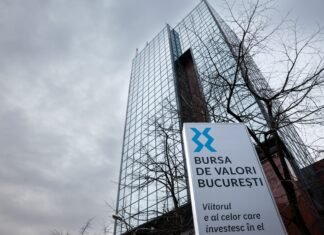The Minister of Energy has announced that the national energy system has successfully navigated through its most challenging period, particularly during the first and second days of Easter. This period often poses significant demands on energy consumption, and the minister’s remarks highlight the successful management of these challenges.
During this peak time, the areas that experienced the most pressure included Bucharest, Craiova, and Slatina. These cities faced significant fluctuations in demand, leading to what are termed ‘supratensiuni’ or overvoltages. Such conditions can cause disruptions in energy supply and lead to potential damage in electrical infrastructure if not managed appropriately.
The Minister’s statement comes after a series of preparations and strategic implementations that aimed to mitigate the risks associated with increased energy consumption during holiday periods. It is not uncommon for energy demand to spike during festive seasons as households and businesses increase their usage, often running multiple appliances simultaneously. The governmental measures in place appeared to have successfully alleviated potential issues, ensuring that power supply remained stable and reliable.
In recent years, concerns about energy sustainability and management have become increasingly prominent, especially during peaks in usage. The ministry has been focusing on optimizing energy distribution networks, enhancing infrastructure resilience, and promoting energy efficiency. The successful handling of the recent holiday pressure is a testament to these ongoing efforts.
Moreover, the minister acknowledged the crucial role of cooperation among energy providers and consumers alike. The collaboration during peak times ensures that everyone is prepared for the increased demand, which can fluctuate unpredictably. By reinforcing communication between energy distributors and consumers, the ministry aims to create an adaptive network capable of responding to real-time demands effectively.
Additionally, this success underscores the importance of ongoing investments in energy infrastructure. Modernizing the electrical grid, integrating smart technology, and diversifying energy sources are essential steps taken by the government to bolster the country’s energy independence and reliability. Such advancements are particularly vital in urban areas, where populations are denser, and energy needs are greater.
Overall, the Minister’s recent statements not only reflect a moment of triumph for the national energy system but also serve as a reminder of the ongoing challenges and responsibilities that come with energy management in a rapidly changing world. As energy consumption patterns evolve and as the country aims to transition towards more sustainable practices, continuous oversight and innovation will remain key.
In conclusion, the successful navigation through the high energy demands experienced during the Easter holiday is a positive indicator of improved energy management in Romania. The government’s proactive steps, alongside the minister’s emphasis on cooperation and infrastructure investment, signal a commitment to securing a reliable energy future for all citizens. Maintaining this momentum will be essential as the nation prepares for future challenges and works towards a more resilient and sustainable energy sector.






